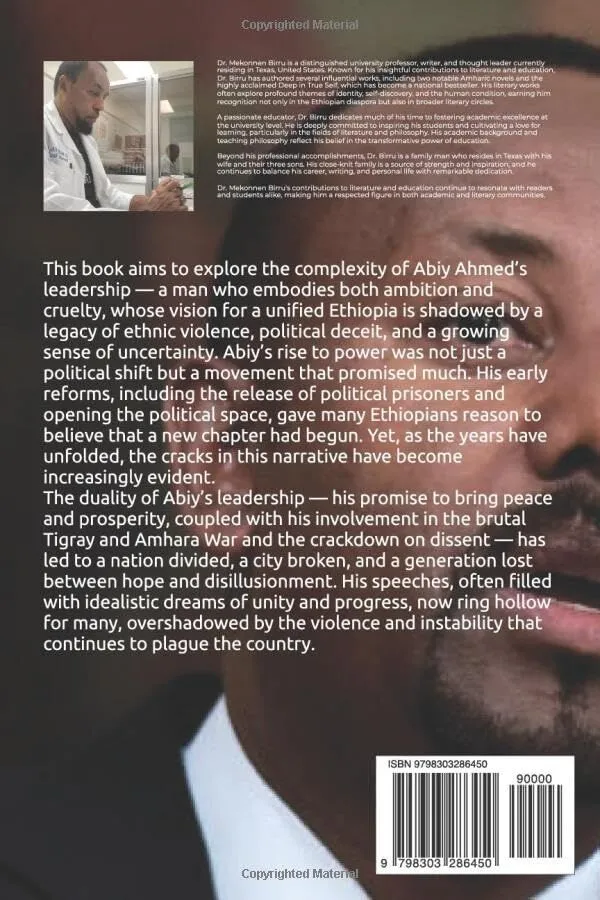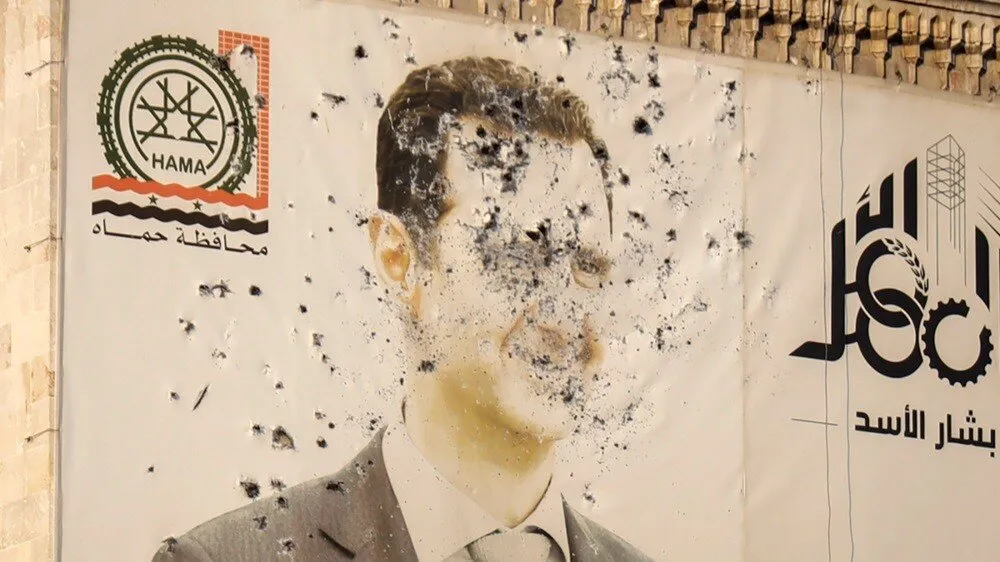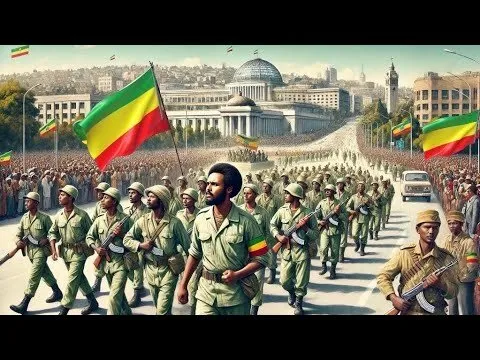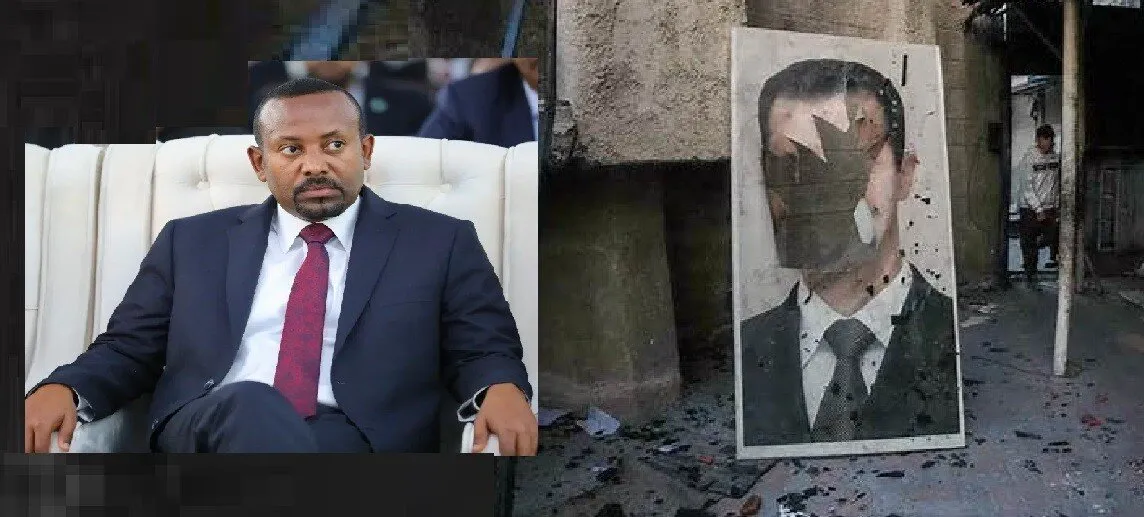Ethiopians had their new year on September 11. It is now 2005 in the Gregorian calendar. On September 21, they also got a new prime minster. How delightfully felicitous to have a new prime minister in the new year! Heartfelt congratulations and best wishes to the people of Ethiopia are in order.
Hailemariam Desalegn was sworn in as prime minister before a special session of parliament. It was a rather low key affair with little pomp and circumstance. There were no parades and no sounds of bugle or trumpet announcing the changing of the guard. No inaugural balls. It was a starkly scripted ceremonial affair with minimal fanfare and political theatricality. Some 375 of the 547 members of Parliament sat quietly and heard Hailemariam recite the oath of office and gave him a hearty round of applause.
Since late May, Hailemariam has been operating in political limbo. He was officially described as “deputy”, “acting” and “interim” prime minster, the latter two offices unauthorized by the Constitution of Ethiopia. There were also some nettlesome constitutional questions about the duties of the deputy prime minister in the absence of the prime minister and the proper method of succession. Those issues aside, Hailemariam’s swearing in ceremony was scheduled on several prior occasions only to be cancelled without adequate explanation. The abrupt cancellations fueled all types of speculations and conspiracy theories about turmoil and confusion among the ruling elites. To complicate things further, it was officially announced days before the actual swearing in ceremony that Hailemariam would be sworn in early October. For some publicly unexplained reason, a special session of parliament was suddenly called for the purpose of naming a prime minister creating additional public confusion about the manifest dithering among the power elites.
Hailemariam takes office under a cloud of apprehension. Speculations abound that he is really a “figure head”, a “front man” and a “seat warmer” for the entrenched interests in a transitional period. Critics suggest that he will have little independence of action and will be puppet-mastered by those who control the politics and economy behind the scenes. Others suggest that he is a “technocract” who is unlikely to survive in a political machine that is lubricated by intrigue, cabalist conspiracy and skullduggery. But some, including myself, have taken a wait-and-see attitude and would like to give him the benefit of the doubt.
Hailemariam’s “inauguration speech” hammered the theme of “Stay the Course.” He said under his leadership the programs and projects that have been initiated and underway will continue to completion. “Our task is to stay the course on the path to firm development guided by the policies and strategies [of our party]. We will continue to pursue development and democracy by strengthening our collective leadership and by mobilizing the people.” He said modernizing agriculture and the rural economy by accelerating agricultural development were top priorities. His government “will work hard” to improve agricultural infrastructure. He promised help to cattle raisers. He emphasized the need for better educational quality and entrepreneurial opportunities for the youth. He said the country needs a curriculum focused on science, technology and math. His administration will work hard to expand opportunities for women and pay greater attention to women’s health and improved health care services to mothers. He called upon the intellectuals and professional associations to engage in rigorous applied policy analysis and research to solve practical problems.
Hailemariam said his vision is to see Ethiopia join the middle income countries in ten years. To achieve that, he said significant improvements are needed in industry and manufacturing. His administration will pay special attention to remove development bottlenecks, improve the export sector and facilitate greater cooperation between the private sector and the government. He promised to work hard to alleviate housing and transportation problems in Addis Ababa. He touched upon the economy noting that though inflation is coming down, much more action is needed to bring it under control. He urged Ethiopians to bite the bullet (tirs neksen) and make sure the existing plans for ground and rail transportation, hydroelectric power generation and telecommunications are successfully executed. He pledged to complete the “Hedasse Gidib” (“Renassaince Dam”) over the Blue Nile. He referred to corruption and mismanagement in land administration, rent and tax collections and public contracts and pledged to get the public involved in eliminating them. He noted that there were significant deficits in good governance in the operation of the police, courts, security system that need to be improved.
Hailemariam emphasized that importance of human rights. He urged the parliamentary oversight committee to review the work of the Human Rights Commission for improvements. He underscored the vital role of the Elections Commission, the Human Rights Commission, press organizations and opposition parties in the country’s democratization. He said he was ready to work “closely” with press organizations, civic society institutions and other entities engaged in the democratic process. On foreign policy, he focused on regional issues, Ethiopia’s contribution to peace-building in Somalia, South Sudan and the Sudan.
The speech could best be described as “technocratic” in the sense that it focused on ways of solving the complex problems facing the country. The speech was short on rhetoric, oratory, appeals to the pathos of the masses and big new ideas and promises. He did not sugarcoat the deep economic problems of the country with hyperbolic claims of 14 percent annual growth nor did he make any grandiose claims about Ethiopia as the “one of the fastest-growing, non-oil-dependent economies in the developing world”. There were no impactful or memorable lines or sound bite phrases in the speech. He offered no inspirational exhortations in words which “soared to poetic heights, igniting the imagination with vivid imagery”. There were no anecdotes or storytelling about the plight of the poor and the toiling masses. It was a speech intended to serve as a call to action with the message that he will work hard and asks the people to join him. He spoke of responsibility, hard work, willingness to lead, standing up to challenges, engaging the opposition, civil society and press institutions, etc. for the purpose of improving the lives of the people.
Hailemariam’s speech was a refreshing change from similar speeches of yester years in a number of ways. It was delivered in a dignified and statesmanlike manner. It was not an ideologically laced speech despite repeated references to the guiding grand plan. It was accommodating and bereft of any attitude of the old militaristic and aggressive tone of “my way or the highway.” There was no finger pointing and demonization. He did not use the old tricks of “us v. them”. He did not come across as an arrogant know-it-all ideologue. He offered olive branches to the opposition, the press and other critics of the ruling party. What was even more interesting was that he did not pull out the old straw men and whipping boys of “neoliberalism”, “neocolonialism”, and “imperialism” to pin the blame on them for Ethiopia’s problems. He did not pull any punches against the local opposition or neighboring countries. He used no threats and words of intimidation. Even when he addressed the issues of corruption, mismanagement and abuse of power, he aimed for legal accountability rather than issuing empty condemnatory words or threats.
Another surprising aspect was the fact that the speech contained none of the old triumphalism, celebratory lap running and victorious chest-beating exercises. There was no display of strength of the ruling party, no self-congratulations and ego stroking. He softly challenged the opposition and the people to work together in dealing with the country’s problems. His speech seemed to be aimed more at making the people think and act on existing plans than making new promises. Over all, the speech was written with intelligence, thoughtfulness and purpose. Hailemariam spoke in a cool and collected manner and tried to get his points across directly. What he lacked in rhetorical flair, he made up with a projection of self-assurance, humility, respectability and profesionalism.
What Was Not Said
There were various things that were not said. Though Hailemariam acknowledged the structural economic problems and the soaring inflation, he offered no short-term remedial plans. He repeatedly came back to “stay the course” theme. Does “staying the course” mean “our way or the highway”? Is national reconciliation an idea the ruling party will consider? There was no indication in the speech about the transitional process itself, but he did offer what appeared to be olive branches to the opposition, the press and others.
Hailemariam also did not give any indication about the release of the large numbers of political prisoners that are held throughout the country. Nor did he mention anything about re-drafting the various repressive press, civil society and so-called anti-terrorism laws. For over a decade, all of the major international human rights and press organizations have condemned the government in Ethiopia for its flagrant violations of human rights, illegal detention of dissidents and suppression of press institutions and persecution of journalists.
Words and Actions: Shoes of the New Prime Minister
It is often hard to judge politicians by the speeches they make. It is not uncommon for politicians to deliver inspirational speeches and come up short on the action side of things. It is true that action speaks louder than words. In his speech, it seems Hailemariam sought to move himself, his party and the people to action. But he is in a difficult situation. He feels, or is forced to feel, that he has to “fill in big shoes”. He said he will walk in footsteps that have already been stamped out. But the shoe that fits one person pinches another. But for all the hero worship, Hailemariam must realize that there is a difference between shoes and boots. For two decades, boots, not shoes, were worn. Those boots have made a disfiguring impression on the Ethiopian landscape. It must be hard to pretend to walk in the shoes of someone who had sported heavy boots. The problem is what happens when one wears someone else’s shoes that do not fit. Do you then change the shoe or the foot? I hope Hailemariam will in time learn to walk in the shoes of the ordinary Ethiopian. He will find out that those shoes are tattered and their soles full of holes. Once he has walked a mile in those shoes, he will understand what it will take to get every Ethiopian new shoes. He must also realize that “it isn’t the mountain ahead that wears you out; it’s the grain of sand in your shoe.” There comes a time when we all need new shoes. That time is now. All Ethiopians need new shoes for the long walk to freedom, democracy and human rights. Prime Minster Hailemariam does not need hand-me down shoes; he needs shoes that are just his size and style and rugged enough for the long haul.
I believe Hailemariam gave a good “professional” speech. I do not think it will be remembered for any memorable lines, phrases or grand ideas. It was a speech that fit the man who stood before parliament and took the oath of office. As a self-described utopian Ethiopian, I thought the very fact of Hailemariam taking the oath of office symbolically represented the dawn of a long-delayed democracy in Ethiopia. Few would have expected a man from one of the country’s minority ethnic group to rise to such heights. Whether by design, accident or fortune, Hailemariam’s presence to take the oath of office, even without a speech or a statement, would have communicated a profound message about Ethiopia’s inevitable and unstoppable transition to democracy. Most importantly, now any Ethiopian boy or girl from any part of the country could genuinely aspire to become prime minister regardless of his/her ethnicity, region, language or religion.
I do not know if history will remember Hailemariam’s “inaugural” speech as a game changer. History will judge him not for the words he spoke or did not speak when he took the oath of office but for his actions after he became prime minister. It’s premature to judge. I like the fact that he appeared statesmanlike, chose his words carefully, focused on facts and presented himself in businesslike manner. It is encouraging that he expressed commitment to work hard to make Ethiopia a middle income country within a decade. He showed a practical sense of mission and vision while keeping expectations to reasonable levels.
To be Or Not To Be a Prime Minister
“Being Prime Minister is a lonely job,” wrote Maggie Thatcher, Britain’s first female prime minsiter. “In a sense it ought to be; you cannot lead from a crowd.” I would say being a prime minister for Hailemariam, as the first prime minster from a minority ethnic group, will be not only lonely but tough as well. But somebody has got to do it. Hailemariam has his work cut out for him and he will face great challenges from within and without, as will the people of Ethiopia. I wish him well paraphrasing Winston Churchill who told his people in their darkest hour:
I would say to the House as I said to those who have joined this government: I have nothing to offer but blood, toil, tears and sweat. We have before us an ordeal of the most grievous kind. We have before us many, many long months of struggle and of suffering. You ask, what is our aim? I can answer in one word: Democracy. Democracy at all costs. Democracy in spite of all terror. Democracy, however long and hard the road may be, for without democracy there is no survival.”
I believe Ethiopia will survive and thrive and her transition to democracy is irreversible, inevitable, unstoppable and divinely ordained!
On a personal note, I would give Prime Minster Hailemariam a bit of unsolicited advice. Smile a little because when you smile the whole world, not just the whole of Ethiopia, smiles with you!















